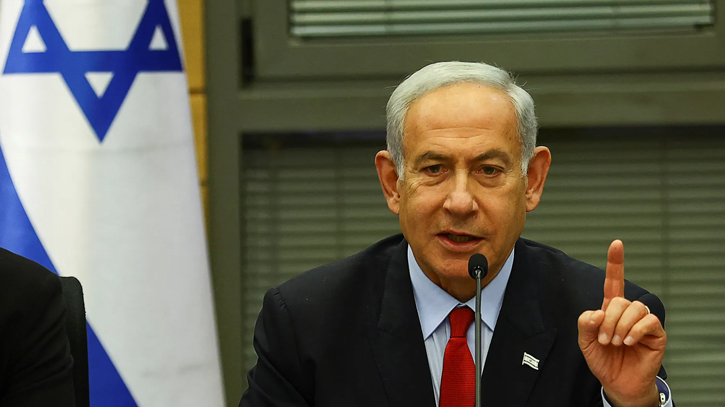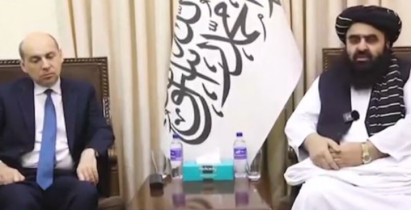
Benjamin Netanyahu. Photo: Collected
Israel will pursue its war against Hamas until victory and will not be stopped by anyone, including the world court, Prime Minister Benjamin Netanyahu said in a defiant speech Saturday (13 January), as the fighting in Gaza approached the 100-day mark.
Netanyahu spoke after the International Court of Justice at The Hague held two days of hearings on South Africa's allegations that Israel is committing genocide against Palestinians, a charge Israel has rejected as libelous and hypocritical. South Africa asked the court to order Israel to halt its blistering air and ground offensive in an interim step.
No one will stop us, not The Hague, not the axis of evil and not anyone else, Netanyahu said in televised remarks Saturday evening, referring to Iran and its allied militias.
The case before the world court is expected to go on for years, but a ruling on interim steps could come within weeks. Court rulings are binding but difficult to enforce. Netanyahu made clear that Israel would ignore orders to halt the fighting, potentially deepening its isolation.
Israel has been under growing international pressure to end the war, which has killed more than 23,000 Palestinians in Gaza and led to widespread suffering in the besieged enclave, but has so far been shielded by U.S. diplomatic and military support.
Thousands took to the streets of Washington, London, Paris, Rome, Milan and Dublin on Saturday to demand an end to the war. Protesters converging on the White House held aloft signs questioning President Joe Biden’s viability as a presidential candidate because of his staunch support for Israel during the war.
Israel argues that ending the war means victory for Hamas, the Islamic militant group that has ruled Gaza since 2007 and is bent on Israel's destruction.
The war was triggered by a deadly Oct. 7 attack in which Hamas and other militants killed some 1,200 people in Israel, mostly civilians. About 250 more were taken hostage, and while some have been released or confirmed dead, more than half are believed to still be in captivity. Sunday marks 100 days of fighting.
Fears of a wider conflagration have been palpable since the start of the war. New fronts quickly opened, with Iran-backed groups — Houthi rebels in Yemen, Hezbollah in Lebanon and Iran-backed militias in Iraq and Syria — carrying out a range of attacks. From the start, the U.S. increased its military presence in the region to deter an escalation.
Following a Houthi campaign of drone and missile attacks on commercial ships in the Red Sea, the U.S. and Britain launched multiple airstrikes against the rebels Friday, and the U.S. hit another site Saturday.
In more fallout from the war, the world court this week heard arguments on South Africa's complaint against Israel. South Africa cited the soaring death toll and hardships among Gaza civilians, along with inflammatory comments from Israeli leaders presented, as proof of what it called genocidal intent.
In counter arguments Friday, Israel asked for the case to be dismissed as meritless. Israel's defense argued that the country has the right to fight back against a ruthless enemy, that South Africa had barely mentioned Hamas, and that it ignored what Israel considers attempts to mitigate civilian harm.
Messenger/Disha








